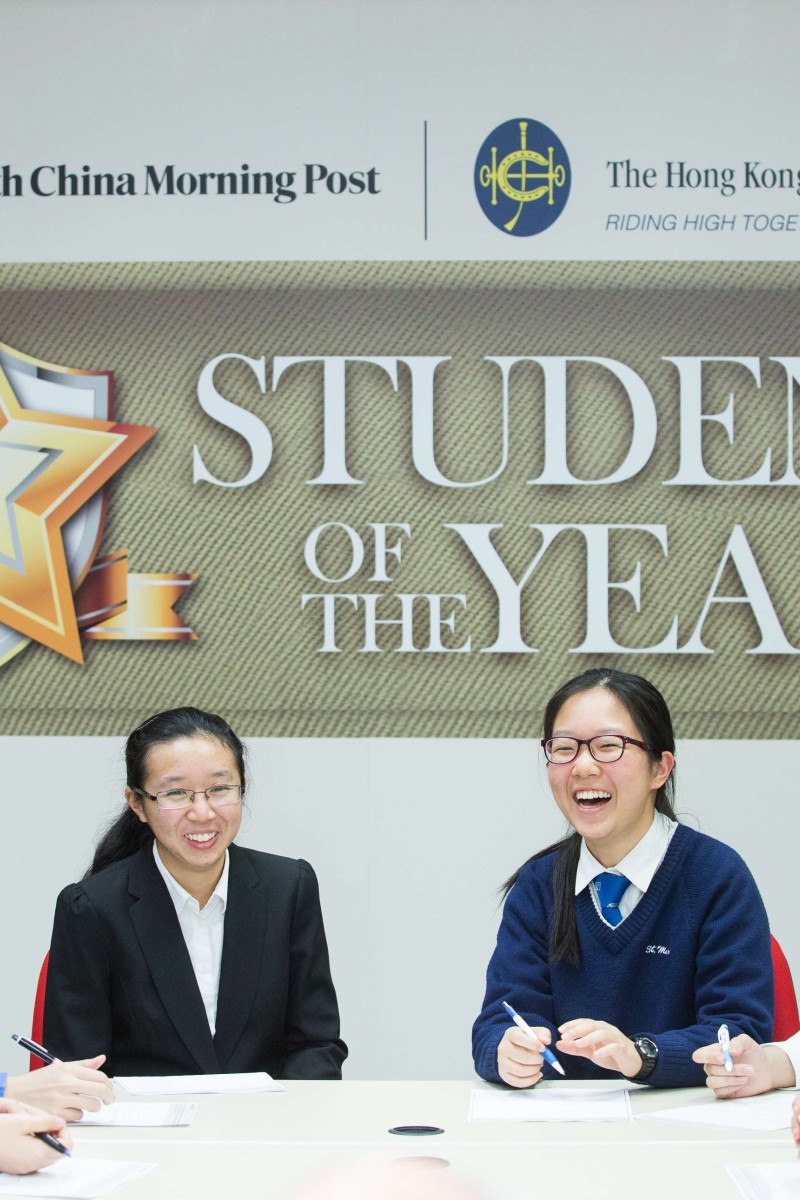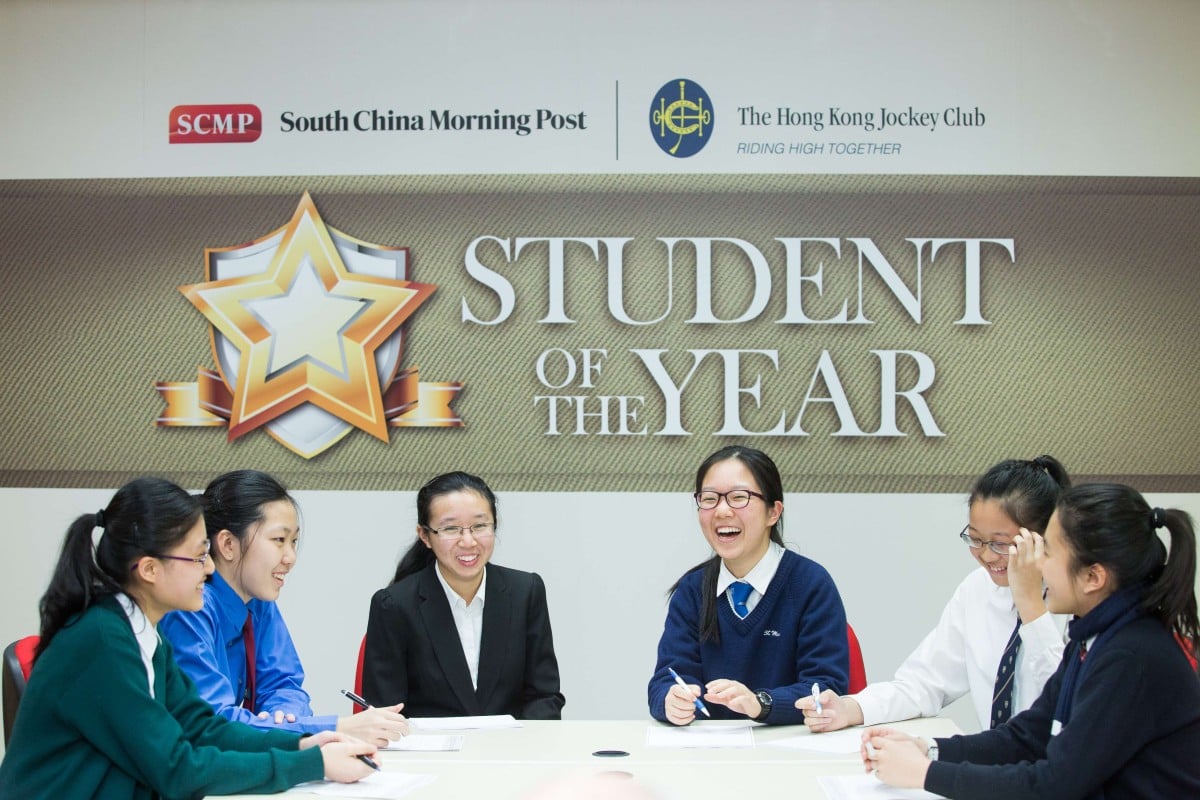
This year’s Grand Prize Award contenders showed judges that they are leaders who can be role models for others
 The finalists had to do excel in everything, including a group discussion, but they knew they had to do something extra to stand out.
The finalists had to do excel in everything, including a group discussion, but they knew they had to do something extra to stand out.Human rights, poverty, disease and pollution are themes that Grace Lam Tin-yan can confidently speak about. But when her name was called for her final interview, she was speechless.
That wasn’t because she had nothing to say, though. Nerves aside, Grace was exuberant and eager to share what she’s done for others. The Form Five student from Belilios Public School is one of the 12 finalists for the Student of the Year - Grand Prize Award. The final was held on February 15, with the winner being announced this Saturday. In the final, students faced three judges in a 10-minute individual interview and a 15-minute group discussion about social issues in the city and what can be done to tackle them.
Grace told the judges she had suffered from scoliosis, an abnormal curvature of the backbone or spine, which forced her to suspend her studies in Form One. She could not attend school because of the constant pain, but it didn’t stop the 17-year-old from volunteering and studying.
As the prize is awarded to students who are in the top tier of all categories, ranging from academic results and talents, to personal accomplishments and community contributions, Grace ticked all the boxes. But she knew that the winner had to have something extraordinary. One of her outstanding achievements that surprised the judges was her ability to put her bizarre yet pragmatic approach into words. She loves writing poetry. One of these poems is called A Copy Machine. It criticises the current education system for “spoon-feeding”, or “moulding” the same types of students who only know how to copy instead of learning for themselves.
While most finalists talked about the community work they did and what they hoped to achieve, finalist and YP junior reporter Belinda Ng Tian-wing spoke about how she has already been able to make change happen.
“I used my music scholarships to buy 300 flutes for underprivileged children in Guangxi province, who didn’t know anything about music. I hoped they could see the world from a different perspective and enjoy the music they play,” says the 16-year-old from South Island School. “With all my volunteering experience, I hope to launch a restaurant or bakery that offers more job opportunities for the disabled. As I’ve faced many difficulties already, I’m confident I’d be able to deal with a lot of the [obstacles] I may run into.”
Belinda said she didn’t prepare too much. “I don’t like ‘packaging’ my answers, so everything I said was ‘raw’. But I believe this is a genuine way to show my sincerity and commitment,” she says.
While talking about dreams, both Lydia Mak Ho-yi and Tiffany Sham Sze-tung had something similar to share – breaking down gender stereotypes. Lydia, a 17-year-old student from Good Hope School, told the judges she has been studying a lot of science and playing football. Tiffany, 16, from Diocesan Girls’ School, has been promoting women’s rights as a Unicef Young Envoy and taking up other community posts.
Lotus Yu Ngar-yeuk, a 17-year-old student from Good Hope School, was shocked when one of the judges asked what would stop her from winning the award. She said that everyone was unique; people’s abilities and talents are not comparable.
“I’m not talented in some areas, but I’m doing my best in others,” she said. “I believe I can be a role model for others to learn from.”
When asked how she could make change, Lotus said she always started with something small. “Helping my siblings, taking up leadership roles at school, taking part in community service, these are things everyone can do. But the issue is whether people actually do it.”
Lotus said she didn’t rehearse the discussion. “I’m honest with my thoughts and feelings. I say what I think,” she said. “For instance, when we were discussing how replacing traditional textbooks with ebooks would affect the education system, I immediately thought about special needs students, as well as the importance of teachers’ and parents’ collaboration on students’ growth.”